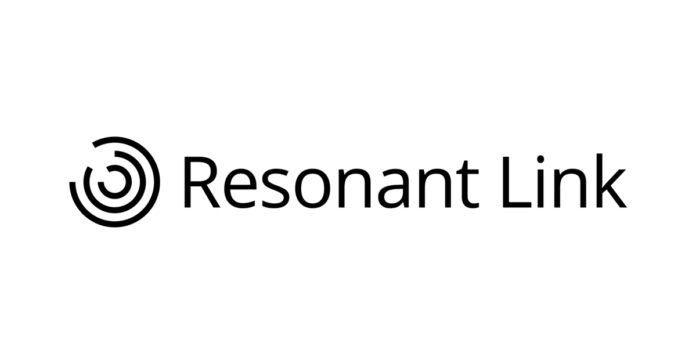BURLINGTON, Vt.– Resonant Link, developer of a transformational wireless charging technology for medical devices and electric automotive fleets, today announced it has raised a $9.3 million seed round, led by The Engine, the venture firm spun out of MIT that invests in early-stage Tough Tech companies. New investor Volta Energy Technologies also participated in the round, alongside previous pre-seed investors including: Emerson Collective, Scout Ventures, Urban Us, and FreshTracks Capital. The new capital will be used for strategic hiring and to support product development and customer deployment. This growth will accelerate Resonant Link’s mission to bring wireless power to every medical device to eliminate drivelines and battery replacement surgeries, and to support electrification in industrial automotive fleets through wireless charging that delivers 24/7 uptime with smaller batteries.
Resonant Link is building best-in-class wireless chargers to power implantable medical devices and accelerate electrification in robotics, material handling, and electric vehicles. Its powerful multi-layer self-resonant structure (MSRS) enables wireless chargers that are:
- 5-10x higher performance than is possible with existing technologies
- 5-10x faster charge (speed)
- 4x lower normalized cost
- 3x lighter in weight
- 3x smaller in size
“Energy and power have become the new vectors of competition across industry, particularly transportation and healthcare, as consumers and patients demand better, safer and more mobile experiences,” said Dr. Grayson Zulauf, co-founder and CEO of Resonant Link. “Our technology isn’t just an evolution in wireless charging; by fundamentally changing the wireless coil geometry from two to three dimensions, we enable charging speeds equal to and faster than wired, longer ranges, smaller chargers, and radically reduced on-board battery sizes. This smaller battery footprint and longer operating life results in less obtrusive medical implants and less stops and more miles for industrial fleets.”
Resonant Link’s MSRS enables 99% efficient wireless links and supports medical implant depths up to 6x deeper than current technology while meeting FDA-mandated temperature limits for devices such as pacemakers, neurostimulators, and ventricular assist devices (VADs). Tethering medical devices with wires and accessing them to charge is either not possible or is an unattractive and dangerous option for patients. Conventional wireless power coils can’t fundamentally deliver the efficiency, biocompatibility, tight integration, large gaps, and tiny size requirements. Resonant Link solves this challenge with the MSRS coil and their power electronics technology for 20x higher recharge rates, simpler alignment for patients, and smaller devices — all at once.
The platform technology also offers a reliable, economical way to recharge electric vehicles during the short stops that already exist during operation, extending range and shrinking on-board batteries. Currently, high upfront cost and significant vehicle downtimes for charging are slowing the shift to electric vehicles (EV). Fleets are buying 2-3x more vehicles than they need to accommodate downtime and batteries must be sized for 8-hour shifts, or more. With wireless charging integrated into routes, the entire paradigm of charging downtime is eliminated. Vehicles can run 24/7 and batteries only need to be sized for 1 or 2 loops of the mission, making EVs a no-brainer for fleet customers.
Resonant Link was founded in 2017 by CEO Grayson Zulauf, PhD, Electrical Engineering, Stanford University, CTO Aaron Stein, PhD, Power Electronics, University of Michigan, CSO Phyo Aung Kyaw PhD, Electrical Engineering, Dartmouth, and Professor Charlie Sullivan of Dartmouth. Its growing team is a mix of former early-stage founders, engineers, and industry veterans from Tesla, Apple, Motiv, and Dynapower. The company is headquartered in Vermont, has employees in Massachusetts, California, and Zurich and plans to expand in all three locations in 2022.
Since its founding, Resonant Link has secured customers in every sector, including six Fortune 500 companies, to power their mission-critical applications. In the past 12 months, the company was profitable and increased revenue by 6x year-over-year. In that time, its customer base has doubled. Currently, seven medical partners are designing Resonant Link wireless power into their implantable devices and 13 fleets have signed up for an initial deployment in their industrial electric fleets (robots, lift trucks).
“Resonant Link’s focus on medical and transportation applications shows how vast the potential reach is for their technology,” said Orin Hoffman, Partner at The Engine. “Mobility is becoming standard to nearly every consumer electronic device that requires power. Resonant Link is bringing mobility to the most essential, and most challenging, devices. I believe they have the ability to positively impact and improve future medical devices and transportation infrastructure.”
Resonant Link partners with the U.S. Air Force (AFWERX), U.S. Army (xTech), Activate / Cyclotron Road, U.S. Department of Defense, the TomKat Center for Sustainable Energy at Stanford University, National Science Foundation, Shell NREL GCxN Gamechanger, and Dartmouth College.


